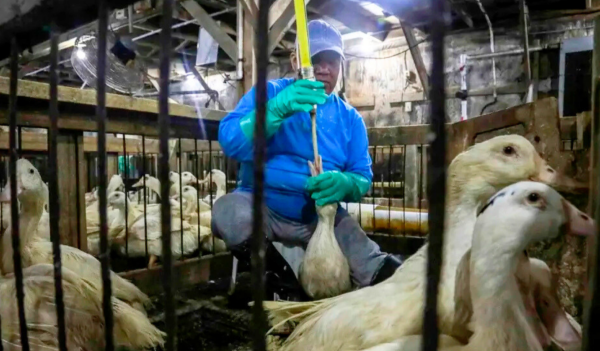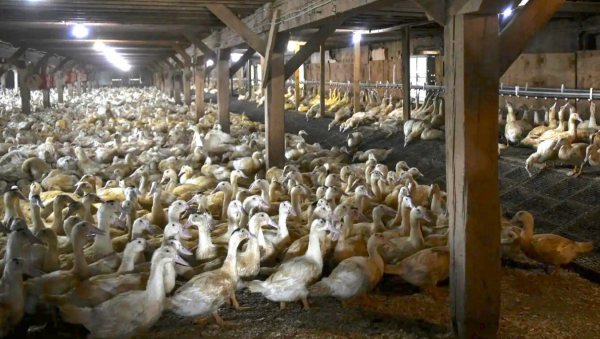IT’s time to End THE SALE OF force-fed FOIE Gras in Portland
The City of Portland has a vested interest in promoting responsible and sustainable business practices and protecting animal welfare. By prohibiting the sale of force-fed foie gras, the city will uphold its commitment to these values and help end the suffering of countless animals on foie gras factory farms.
Who Supports A Prohibition On The Sale Of Foie Gras?
Due to public health, environmental, and welfare concerns, sales of force-fed fatty liver (foie gras) is banned or phased out in 27 countries (85% of the EU).
Foie gras bans have also passed in California and Pittsburgh.
Major retailers that have stopped selling foie gras:
- Target
- Costco
- Whole Foods
- NOW Health Foods
- IKEA
- PCC
- MOM’s Organic Market
What is Foie Gras?
Foie gras (/ˌfwɑːˈɡrɑː/) – French for “fatty liver” – refers to a luxury food made from the deseased liver of a duck or goose. Foie gras is typically produced by force-feeding ducks and geese with foot-long metal or plastic tubes until their livers fatten to as much as 10 times their normal, healty size.
After enduring weeks of force-feeding, the birds are slaughtered, and their livers are processed to be sold as foie gras.

Policy Proposal
Portland has a reputation for being ethical and equitable. Our proposed bill would prohibit the sale of foie gras from force-fed ducks and geese in the City of Portland. Enforcement follows a complaint-based model, costing very little.
Less than 1% of restaurants in Portland serve foie gras, and no evidence suggest that business would be lost due to passage.

Major Concerns
- Ethical Concerns
- Punctured beaks, necks, exploded organs
- Suffocation, pain, and injury.
- Mortality rate is 9x to 19x higher than non-force-fed birds
- Harm to Existing Poultry, Dairy Operations
- USDA reports that since Feb 2022, 100 million poultry birds have been killed due to HPAI infection costing $1 billion
- Negative Effect on Sustainability Goals
- U.S. foie gras operations produce around 1.5 million gallons of wastewater
- Waste runoff contains high levels of nitrogen and phosphorus fueling growth of Harmful Algal Blooms (HABs) and oceanic dead zones
- Production Can Spread Avian Influenza, Infecting:
- ducks, chickens, turkeys, pheasants, wild birds
- cows, mice, rats, cats, goats
- skunks, foxes, bears, mink
- humans
